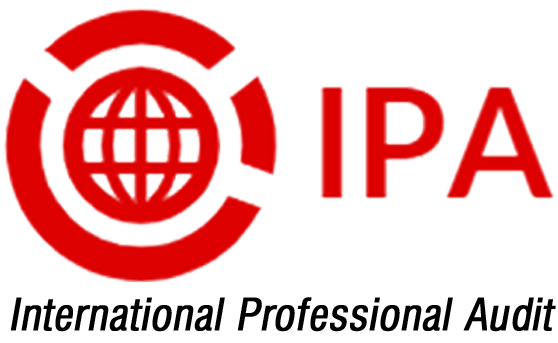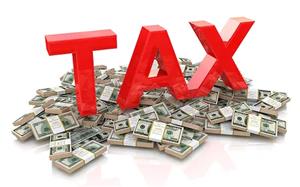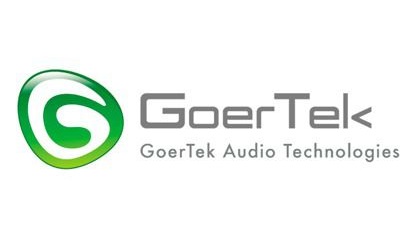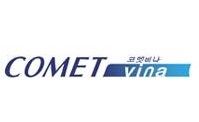Invoice
The time to issue commercial invoices and e-invoices is different when exporting
On June 3, 2022, the General Department of Customs issued Official Letter No. 2054/TCHQ-GSQL on the use of electronic invoices for exported goods. Specific content as follows:
According to international practice when carrying out procedures for exporting goods, enterprises use commercial invoices to carry out customs procedures and export goods abroad. Commercial invoices are prepared and used in accordance with the UCP 600 unified rules and practices on documentary credits and ensure that they fully meet the contents according to international practices.
According to the provisions at Points b and c, Clause 3, Article 13 of Decree No. 123/2020/ND-CP dated October 19, 2020 of the Government, the time to issue VAT invoices for exported goods is after the customs declaration to complete export customs procedures. Therefore, at the time of customs clearance for exported goods, the customs declarant cannot issue a VAT invoice to submit in the customs dossier.
Accordingly, the making of e-invoices shall comply with Vietnamese law, and invoices in international trade shall comply with international practices. The time to issue these two types of invoices is different: commercial invoices are issued before customs clearance and e-invoices are issued later.
Issue correction invoices for multiple incorrect invoices
On May 6, 2022, the Tax Department of Bac Ninh province issued Official Letter No. 1464/CTBNI-THTT guiding the issuance of adjusted e-invoices. Specific content as follows:
In case on April 20, 2022, the company issues VAT invoice number 01, which has been granted a code by the tax authority and sent to the buyer. On April 22, 2022, the company discovered that the VAT rate was wrong, the buyer and the seller made a minutes of agreement on the content of the error and the company made VAT invoice number 02 to adjust the tax rate and tax amount. VAT for invoice No. 01 has been assigned a code and sent to the buyer. On April 26, 2022, the Company discovered invoice number 02 (adjusted invoice) with the wrong amount in words. The company continues to follow the method selected to apply when handling errors for the first time: make a record of agreement on the content of the error and the company issues VAT invoice number 03 to adjust for invoice number 02. there are errors.
Currently, the e-invoice application is instructing 01 e-invoice to be adjusted for 01 invoice (1:1 adjustment), not yet allowing to make 01 invoice to adjust for many incorrect invoices.
Handling old invoices with errors after applying e-invoices according to Decree No. 123/2021/ND-CP
On June 1, 2022, Hanoi Tax Department issued Official Letter No. 25024/CTHN-TTHT guiding the issuance of adjusted e-invoices. Specific content as follows:
In case the invoice has been made (according to Decree No. 51/2010/ND-CP, Decree No. 04/2014/ND-CP of the Government and guiding documents of the Ministry of Finance) with the selling price is the provisional price. At the time of signing the contract, and then there is a decrease in the selling price, the seller and the buyer must make a written agreement clearly stating the error, the seller shall notify the tax authority according to Form No. 04/SS-HDDT issued 123/2020/ND-CP and issue a new e-invoice (e-invoice with tax authority's code or e-invoice without code) to replace the erroneous invoice. An e-invoice that replaces an incorrect invoice must have the words “Replace the invoice Model No… symbol… number… date… month…”. The seller signs on the new e-invoice to replace the incorrect invoice (invoices made according to Decree No. 51/2010/ND-CP, Decree No. 04/2014/ND-CP of the Government and other relevant regulations). instruction document of the Ministry of Finance) to send to the buyer (for the case of using e-invoices without a code) or the seller to send to the tax authority to be granted a code for the e-invoice to replace the invoice that has already been issued. prepare (for the case of using an electronic invoice with a tax authority's code) according to the guidance in Clause 6, Article 12 of the Finance Ministry's Circular No. 78/2021/TT-BTC dated September 17, 2021.
No need to issue an electronic invoice when exporting scraps and discarded products abroad for destruction
On June 2, 2022, the Tax Department of Bac Ninh province issued Official Letter No. 1725/CTBNI-TTHT guiding the creation of electronic invoices when exporting scrap goods for destruction. Specific content as follows:
In case, the Company accepts to manufacture goods according to the orders of foreign customers, and according to the agreement in the contract, the customer has the right to own the scraps and discarded products after using the raw materials used for production. produce finished products to sell to customers and request the Company to export scraps and waste products abroad for destruction (to keep product information confidential). If the value of scrap and discarded products is already included in the structure of determining the cost and selling finished products to the customer, when the Company exports the scrap and discarded products abroad for destruction as specified by the customer and with the consent of the customer. consent of the customs authority, at the same time the Company does not receive any other revenue from the export of scrap and discarded products abroad for destruction (the payment method on the export declaration is: KHONGTT – No. payment), the Company is not required to issue an e-invoice when exporting scrap and discarded products abroad for destruction because it is not required to issue an e-invoice as prescribed in Clause 1, Article 4 of Decree No. 123. 2020/ND-CP dated October 19, 2020 of the Government.
E-invoices without codes must be registered with tax authorities
On April 8, 2022, the General Department of Taxation issued Official Letter No. 1058/TCT-DNNCN guiding the use of electronic invoices without tax authorities' codes. Specific content as follows:
Enterprises using e-invoices without the tax authority's code and transferring data in the form of direct connection to the General Department of Taxation must satisfy the prescribed conditions and submit a written request for direct connection of the tax authority. enterprises, specifying the number of invoices used.
Corporate Income Tax (“CIT”)
Expenses that are deductible when calculating CIT and taxable income
On June 1, 2022, the Tax Department of Bac Ninh province issued Official Letter No. 1717/CTBNI-TTHT guiding the deductible expenses when calculating CIT and taxable income. Specific content as follows:
In case the Company sends Vietnamese workers on a business trip abroad according to the job requirements, the Company must have a decision or document on sending workers to work abroad, enclosed with documents to prove The employee's overseas business trip such as: place of work, work and performance results, etc., is confirmed by relevant parties. Expenses for serving overseas employees must be specified in terms of subjects and spending levels in the Financial Regulations or the Company's internal regulations. are not included in the employee's taxable income.
If the Company spends on the wrong subjects or in excess of the prescribed expenditures, the expenditures that are not for the right subjects or the excess must be included in the PIT taxable income of the employees who are sent on business trips.
In case, the foreign worker expires the appointment term in Vietnam and terminates the labor contract and returns to the host country, the Company shall pay the costs of air tickets and transportation of personal belongings. If the employee's employee returns home (according to the agreement in the previously signed labor contract or the Collective Labor Agreement or the Company's financial regulation), these expenses, if there are sufficient invoices Legal documents, payment in accordance with the provisions of law shall be included in the deductible expenses when calculating CIT and must be included in the taxable income subject to PIT.
Depreciation expense during production halt is not deductible
On May 9, 2022, the Tax Department of Bac Ninh province issued Official Letter No. 1475/CTBNI-TTHT guiding the calculation of depreciation expense for fixed assets during the period of temporary suspension of production. Specific content as follows:
In case the Company does not have orders to stop production, unused machinery is not subject to temporary shutdown due to seasonal production for less than 9 months; temporarily stop for repair, for relocation, for routine maintenance, for less than 12 months. The company still has to depreciate fixed assets during the production stoppage, but the depreciation expense of fixed assets during such suspension period is not included in the deductible expenses when determining the taxable income due to not serving production and business. business.
Labor and insurance
Adjustment of social insurance contributions to the occupational accident and occupational disease insurance fund from July 1, 2022
According to Resolution No. 68/2021/NQ-CP dated July 1, 2021, the rate of social insurance contributions to the occupational accident and occupational disease insurance fund is 0% from July 1, 2021 to the end of June 30, 2022. Accordingly, from July 1, 2022, employers will no longer be entitled to a reduction in social insurance contributions to the occupational accident and occupational disease insurance fund.
Regional minimum wage changes
On June 12, 2022, the Government issued Decree No. 38/2022/ND-CP stipulating the minimum wage for employees working under labor contracts. Accordingly, the monthly minimum wage and the hourly minimum wage for employees working for employers by region are as follows:
| Region |
Monthly minimum wage
(Unit: VND/ month) |
Hourly minimum wage
(Unit: VND/ hour) |
| Region I | 4.680.000 | 22.500 |
| Region II | 4.160.000 | 20.000 |
| Region III | 3.640.000 | 17.500 |
| Region IV | 3.250.000 | 15.600 |
The Decree takes effect from July 1, 2022.
Custom
If the conditions for customs inspection and supervision are not met for EPEs, the tax policy for non-tariff zones shall not be applied.
On May 30, 2022, the General Department of Customs issued Official Letter No. 1939/TCHQ-GSQL guiding the implementation of the provisions of Clause 10, Article 1 of Decree 18/2021/ND-CP of the Government. Specific content as follows:
From the date of overdue 1 year from the effective date of Decree No. 18/2021/ND-CP, the Customs Sub-department managing and certifying that the Company does not satisfy the conditions for customs inspection and supervision for EPEs. The company is not allowed to apply tax policy to non-tariff zones. In case the Company then informs the Customs Sub-department to manage and inspect the inspection and supervision conditions and the Management Customs Sub-Department confirms that they are satisfied, the Company will continue to apply the tax policy on non-tariff zone.














